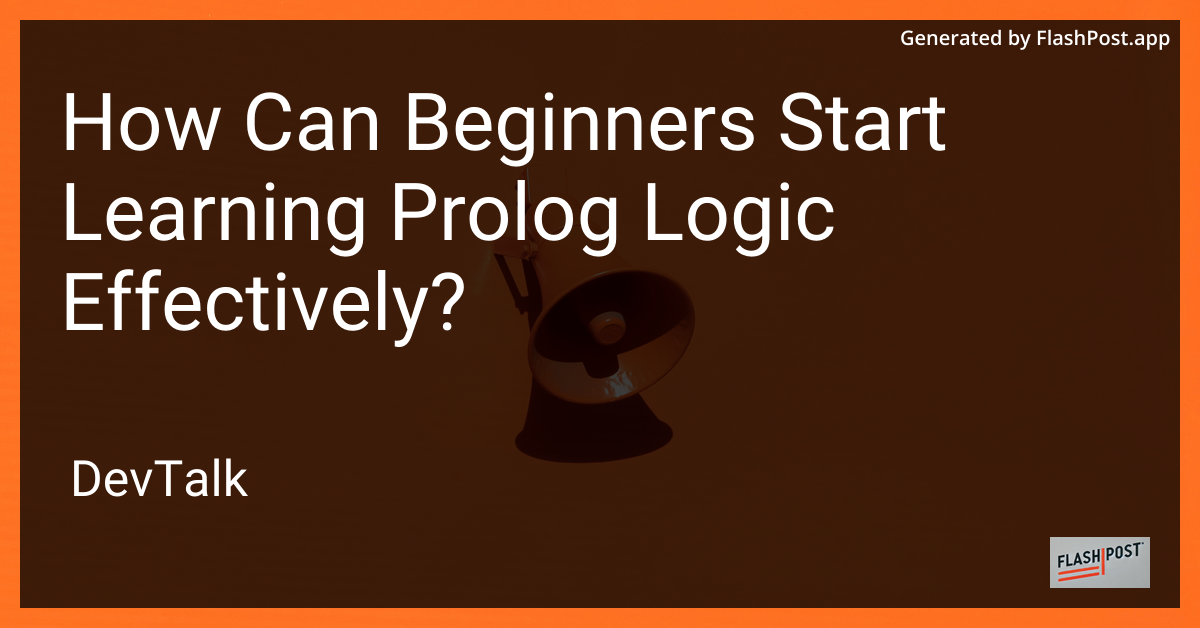How Can Beginners Start Learning Prolog Logic Effectively?
 # How Can Beginners Start Learning Prolog Logic Effectively?
# How Can Beginners Start Learning Prolog Logic Effectively?
Prolog is a powerful logic programming language commonly used in artificial intelligence and computational linguistics.
However, due to its unique paradigm, beginners may find it challenging to grasp its concepts initially. Here's a comprehensive guide to help beginners start learning Prolog logic effectively.
Understanding the Basics of Prolog
Before delving into more complex aspects, it's crucial to understand the fundamental concepts of Prolog:
- Facts and Rules: Prolog operates on facts and rules. Facts represent basic assertions about the world, while rules describe the relationship between these facts.
- Queries: The fundamental way of interacting with Prolog is through queries. You query the knowledge base to derive answers.
- Syntax: Understanding Prolog's syntax is essential. It is quite different from other programming languages, with its use of predicates, atoms, and variables.
Step-by-Step Guide for Beginners
1. Grasp the Fundamentals
Start by getting comfortable with the basic concepts of Prolog mentioned above. Books such as "Programming in Prolog" by Clocksin and Mellish are excellent resources.
2. Work with Simple Examples
Practice writing simple programs. For instance, try defining family relationships and query them. This will provide a practical understanding of how Prolog operates with facts and rules.
3. Explore Logical Operators
Understanding logical operators in Prolog is crucial for programming efficiently. These operators enable you to build complex expressions and control the flow of logic effectively.
4. Learn Through Practical Projects
Engage in small projects such as solving puzzles, or logical games. This offers hands-on experience and solidifies your understanding of Prolog's principles.
5. Master Prolog Rules
Learn how to write Prolog rules effectively. This is a critical skill that enables you to model and solve problems logically. Check out this guide on writing Prolog rules.
6. Explore Advanced Topics
Once comfortable with the basics, explore more advanced topics like recursive predicates and list processing. Understanding how to infer using Prolog will enhance your problem-solving abilities.
7. Join Online Communities
Joining forums, discussion groups, and online communities can be beneficial. Interacting with other learners and experts can provide insights and solutions to common challenges.
8. Utilize Online Resources
Explore online resources and articles to gain additional perspectives and knowledge. For instance, understanding Prolog's logic operations can further enhance your coding skills.
Conclusion
While learning Prolog may seem daunting at first, a structured approach can simplify the process significantly. By following this guide, practicing regularly, and utilizing available resources, beginners can effectively learn and master Prolog logic. Begin your journey by exploring how you can implement logic operators in Prolog to deepen your knowledge and enhance your programming capabilities. Happy coding!